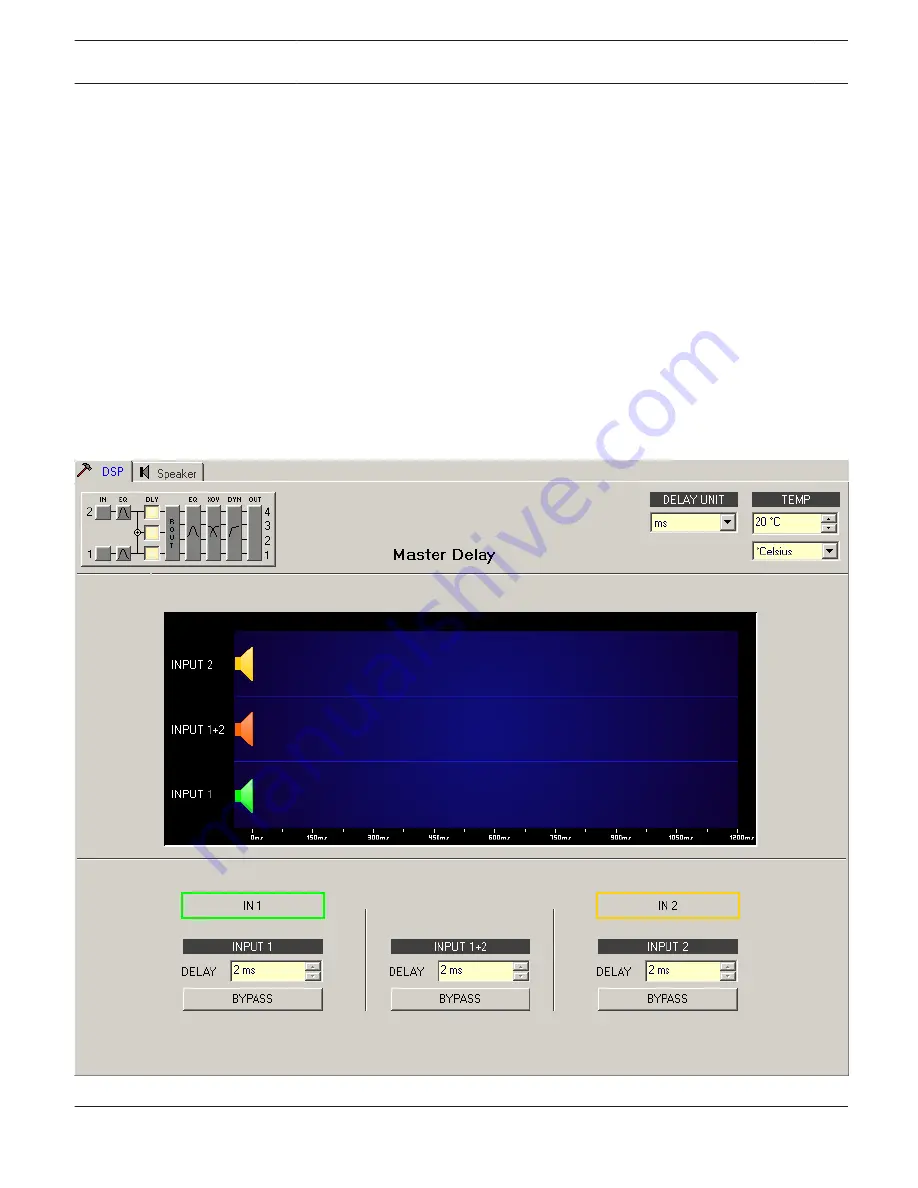
Filter Editing via “Mouse Movement” in the Graphics Display
A white dot in the frequency response display represents an active filter (BYPASS not engaged). Clicking with the left
mouse button on this dot and keeping the mouse button pressed down allows changing the selected filter’s frequency
by moving the mouse to the left or to the right as well as its amplification (depending on the selected filter type) by
moving the mouse up or down. Clicking with the right mouse button on the white dot and keeping the mouse button
pressed down allows changing the Q-values of parametric EQs.
For an improved overview the name of the corresponding filter band appears in color as soon as the mouse cursor is
positioned over its white dot.
MASTER DELAY
Individual master delays can be set for each input channel of a remote amplifier. Setting a different delay for the
summed signal of the two input channels is also possible. Master Delays are mainly used to compensate for different
natural delay times in the audio signal, as they are common when two sound sources reproducing identical audio
information are located further apart.
You can select the master delay window by clicking onto the third block in the Flow Diagram Selector or onto the MAS-
TER DELAY block in the flow diagram.
IRIS-Net
DIGITAL SOUND PROCESSOR | en 590
Bosch Security Systems B.V.
User Manual
2017.05 | 3.20 | F.01U.119.956
















































